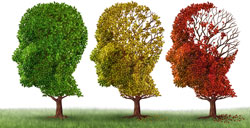Please click here to go to the most recent version of this course
Florida DOEA Approval: This course has been approved by the Florida Department of Elder Affairs for Nursing Homes (NH AD 9543), Hospice (HSP AD 9541), and Adult Day Care (ADC AD 9539). Approval through June 30, 2023.
Certified Trainer: The author is certified as an ADRD trainer by the Florida Department of Elder Affairs and is available via e-mail at [email protected] or by phone Monday–Friday from 9 a.m. to 5 p.m. (Pacific Time) at 707 459 3475. Training Provider Approval Number NH 2727
Author: Lauren Robertson, BA, MPT
Contact hours: 3
Expiration date: June 30, 2023
Course price: $29
Course Summary
This course provides direct-care staff in nursing homes, hospice, and adult daycare with the skills, techniques, and strategies to care on a daily basis for residents who have Alzheimer’s disease or a related dementia. It includes activities that allow participants to practice the skills and strategies they have learned.
Criteria for Successful Completion
Study the course material, achieve a score of 80% or higher on the post test (the post test can be repeated if a learner scores less than 80%), complete the course evaluation, and pay where required. No partial credit will be awarded.
Accreditation
To find specific accreditations or approvals, click here.
Course Objectives
When you finish this course you will be able to:
- Describe the 2 pathophysiologic components thought to be part of the pathology in Alzheimer’s disease.
- Identify 5 challenging behavioral and psychological symptoms of dementia.
- Provide 3 best practice guidelines for the use of physical or chemical restraint.
- Describe 3 best practices that can be broadly applied when assisting someone with activities of daily living at all stages of dementia.
- List 4 benefits of a well-designed activities program.
- Describe 3 ways in which caring for someone with dementia can affect a caregiver’s quality of life.
- Explain 3 issues family caregivers face as their loved one transitions from mild to moderate to severe dementia to end-of-life.
- Identify 3 concepts that are important in the design of a therapeutic environment for those with dementia.
- Identify 4 key concepts that are part of an ethical approach to dementia care.

